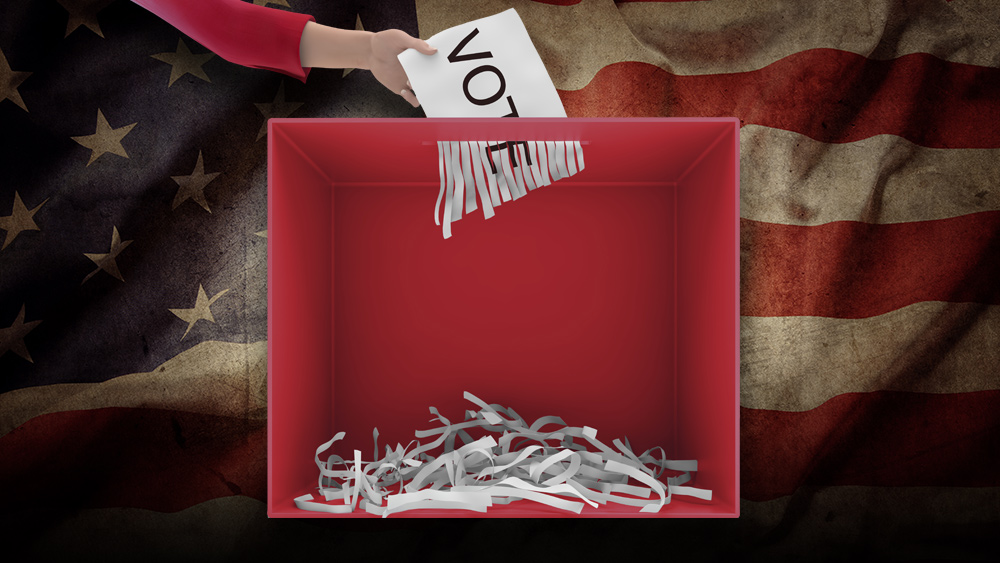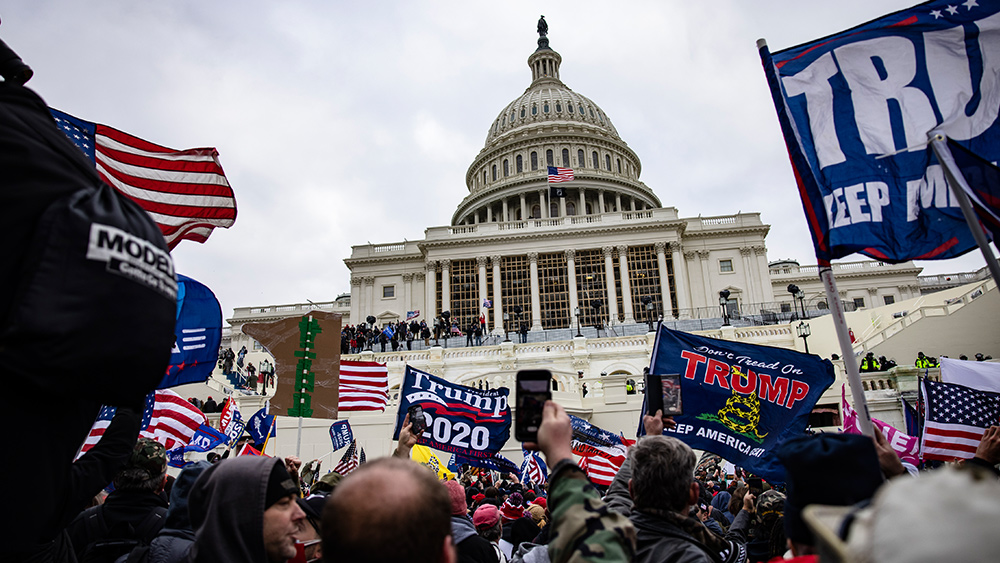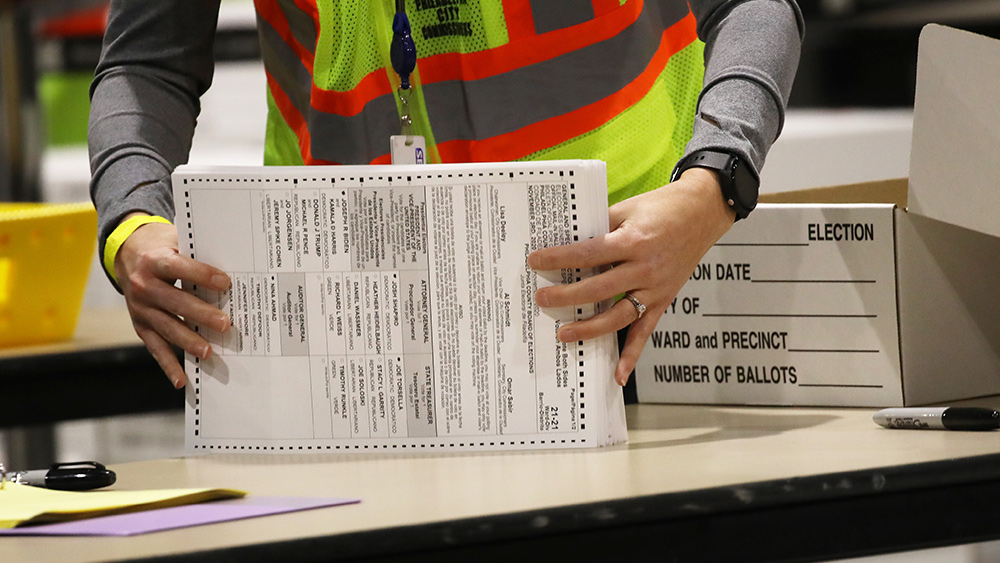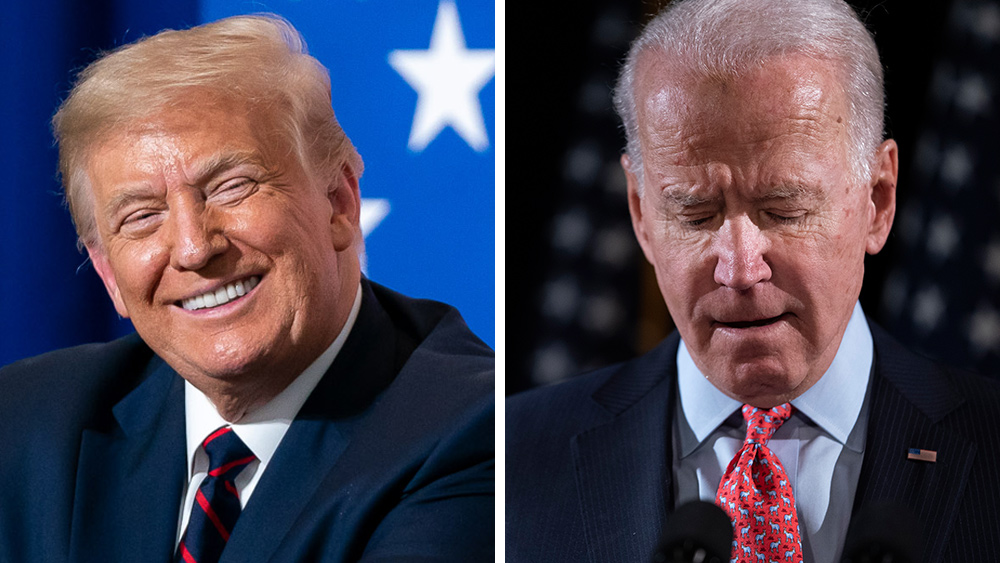This Obama-era legislation could help Trump advance his agenda of smaller, more accountable and efficient government
08/20/2017 / By JD Heyes
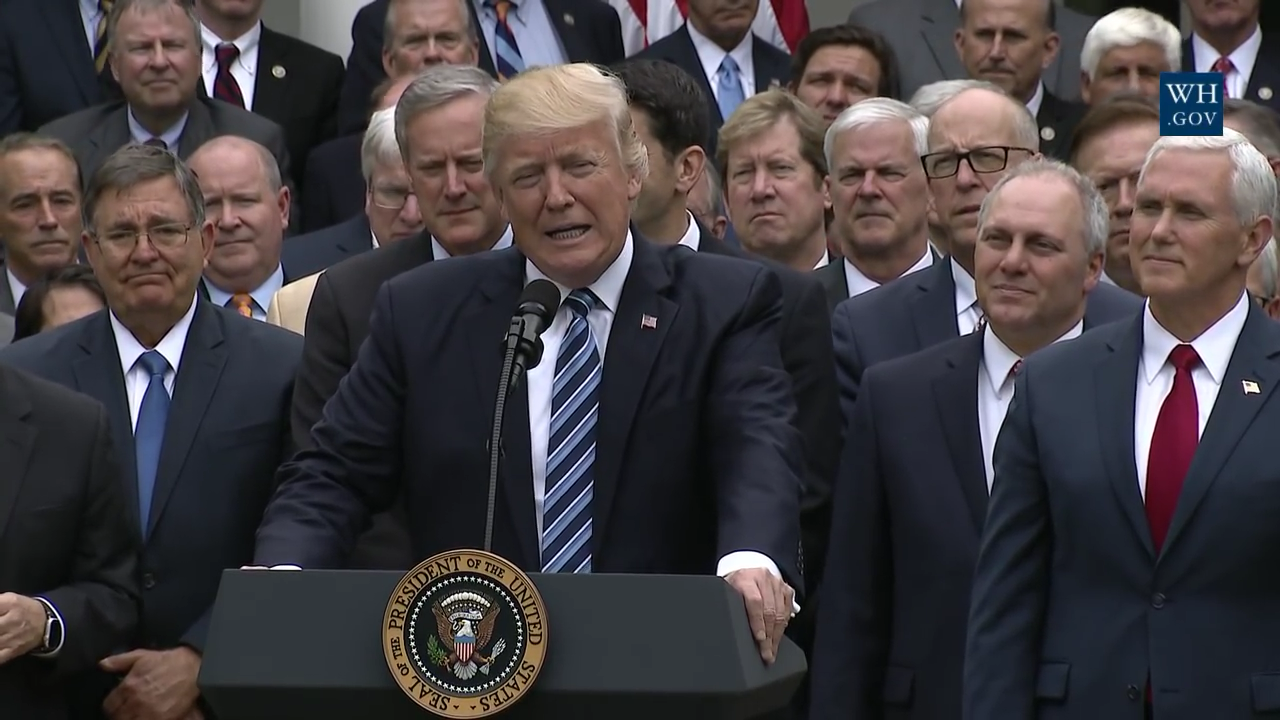
When you consider governing style and substance, Barack Obama and Donald J. Trump are polar opposites.
Obama was reserved in public and private, earning the nickname “No Drama Obama.” Trump is…not reserved and in fact is quite bombastic, in public and private.
When it came to governing, Obama did everything he could to expand the federal bureaucracy, most notably by taking over one-sixth of the U.S. economy when he signed Obamacare into law.
Trump, by comparison, has been working to roll back big government, calling for dramatic reductions in federal rules, implementing a hiring freeze, and signing legislation that rolled back many of Obama’s last-minute regulations.
And what do you know, an Obama-era piece of legislation known as the DATA Act is very likely going to help Trump accomplish is smaller government agenda.
As reported by NextGov, the DATA Act — short for The Digital Accountability and Transparency Act of 2014 — instructs all federal agencies to upload their financial information to USASpending.gov by each May, allowing the government and the tax-paying public to see how the money is being spent.
The “Obama-era legislation” requires “federal agencies to make their spending data public,” NextGov reported, “including dollar amounts given to contractors and grant recipients.”
And now the Office of Management and Budget believes the law will give Trump’s agenda to streamline government operations a huge boost.
In a recent report to Congress, OMB — which, along with the Treasury Department ensures the DATA Act’s implementation — stated Trump “wants to make the Federal government leaner, more accountable, and more efficient.”
Further, NextGov added:
OMB’s report also shared the results of two pilots that required the Health and Human Services Department and the General Services Administration to gather data about federal contracting dollars and grants directly from businesses that received them. Perhaps unsurprisingly, those pilots demonstrated that simplifying how businesses submit information to federal agencies could reduce their own DATA Act compliance burden, according to OMB.
The budget office advised that it and other agency partners create improved standards and definitions for financial information supplied by grant recipients and contractors. The OMB also said making applications easier and adding an auto-population feature to some forms could also help improve financial data reporting.
NextGov noted that the OMB report makes official the acknowledgment that such reporting standards and guidelines for contractors and grantees are necessary for the transparency of government, according to Hudson Hollister, the founder and director of Data Coalition, and Washington-based organization advocating for more government openness. (Related: Groups Insist The ONLY Way Americans Can Retake Power From Congress Is To Change The Constitution — Here’s How It Can Be Done SAFELY.)
The OMB recommendations may “embolden Congress to make this official…[and] formally extend the DATA Act” to include the suggested new standards, he told the news site.
Dave Mader, once an OMB controller who now serves as chief strategy officer for Deloitte’s civilian sector, said the report “fits nicely with the current administration’s emphasis on reform.”
In January, Trump — on his first day in office — said he believed it was possible to eliminate 75 percent of existing government regulations, and still maintain the health, welfare, and safety of the American people and the environment.
“We’re going to be cutting regulation massively,” Trump told reporters, after promising to be “just as protective of the people.” He said three-quarters of regulations could be cut and “maybe more.”
“What we want to do is bring manufacturing back to our country,” said Trump. “That doesn’t mean we don’t trade because we do trade. We want to make our products here.”
In electing Trump, BigGovernment.news reported, “Americans rejected Obamacare. They rejected Left-wing radicalism in the federal courts. They rejected higher costs for business. They rejected job-killing regulations that targeted entire industries. They rejected the one-size-fits-all approach of an overreaching federal bureaucracy.”
J.D. Heyes is a senior writer for NaturalNews.com and NewsTarget.com, as well as editor of The National Sentinel.
Sources include:
Submit a correction >>
Tagged Under:
big government, government spending, leaner government, less regulations, Obama, OMB, President Donald J. Trump, smaller government
This article may contain statements that reflect the opinion of the author
RECENT NEWS & ARTICLES
Trump.News is a fact-based public education website published by Trump News Features, LLC.
All content copyright © 2018 by Trump News Features, LLC.
Contact Us with Tips or Corrections
All trademarks, registered trademarks and servicemarks mentioned on this site are the property of their respective owners.




